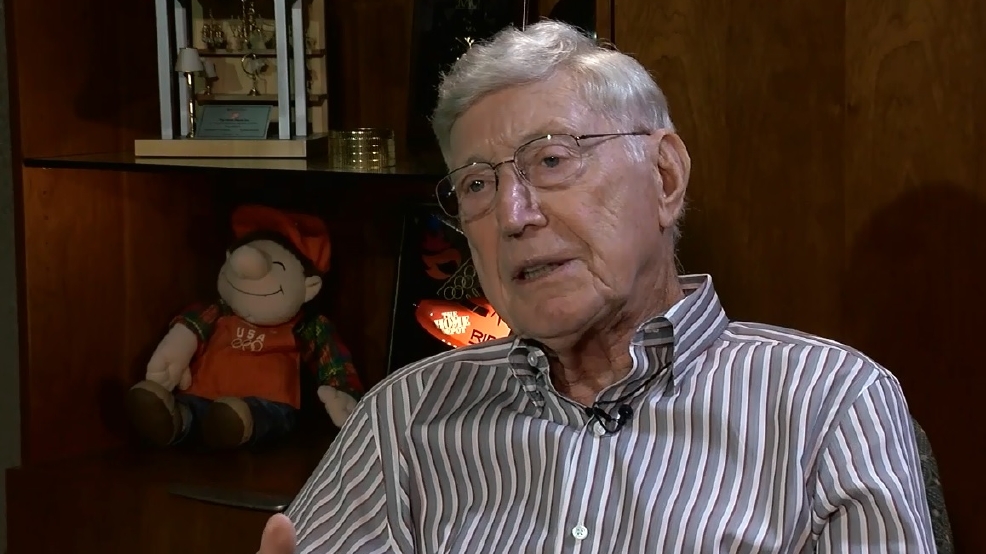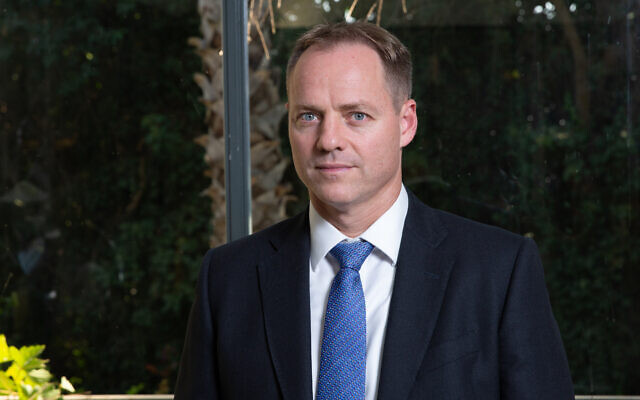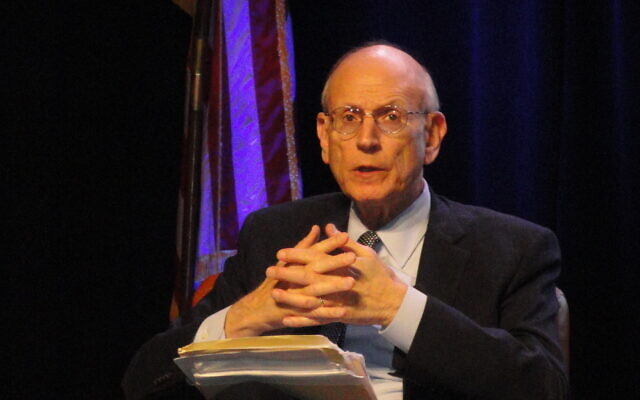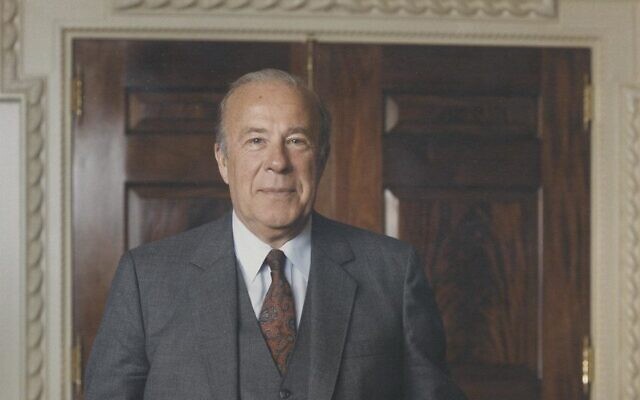Jewish Leaders Remember George Shultz
The former U.S. secretary of state was known for his strong support for Israel.
Calling him a “good friend,” Bernie Marcus said former U.S. Secretary of State George P. Shultz, has “got to be celebrated not mourned.”
Speaking to the AJT Feb. 8, just two days after the death of Shultz at 100, Marcus told how the two had met decades ago. Shultz served as co-chair, along with Marcus, of the Jerusalem-based Israel Democracy Institute, which they co-founded in 1991.
“He was a true friend of Israel and the Jewish community all the years of his life,” said Marcus, co-founder of The Home Depot and a philanthropist of Jewish causes. “There was no better champion,” noting how Shultz served Republican presidents since Dwight D. Eisenhower. According to Marcus, Shultz helped free Jewish refuseniks from Russia.
“He was the most honorable man I’ve ever met, and as smart as anyone I ever met,” Marcus said. “He was a personal adviser to me and a true diplomat.”

Shultz co-founded the IDI not long after stepping down as secretary of state. According to the IDI, Shultz eventually established the Institute’s International Advisory Council and served as its honorary chairman until he died.
“Secretary Shultz was not only a great statesman, economist, businessman and academic, but also a stalwart friend of Israel,” according to IDI President Yohanan Plesner. “After retiring from a long and distinguished career in public service, he expressed his enduring commitment to Israel by readily agreeing to help establish a ‘think-and-do tank,’ as he called it, dedicated to preserving and strengthening Israel’s embattled democracy. Never losing sight of the fragility of our country’s fledgling democracy, Secretary Shultz foresaw the need for an independent, non-partisan think-tank that would provide Israeli decisionmakers with policy proposals based on data, research and expertise.”
Plesner went on to say that Shultz “provided the Institute’s leadership with sage advice over the three decades of his involvement. He was a great man, but also a mensch. Every hour in his presence was simultaneously a seminar in world history and a practical course in leadership.”

According to Marcus, Shultz was drawn to Israel when he was teaching in Chicago. He had a promising economics student who suddenly said he had to leave school to go back to Israel, his home, to fight in one of the wars. “George asked him how a young man with ambition could give it all up for his country.” In fact, the student was killed in the war. Marcus recalled being with Schultz when he met the student’s mother. The Atlanta philanthropist remembered another time in Israel when former President of the Soviet Union Mikhail Gorbachev was honored there. It had been years since Gorbachev and Shultz had met, and the two men hugged each other, Marcus said. “They had changed the history of the world together.”
In fact, according to Stuart Eizenstat, former U.S. ambassador to the European Union, Shultz was the one who “convinced [President Ronald] Reagan that Gorbachev was a different kind of leader. Reagan was very hard-lined on the Soviet Union, but Shultz understood that there was a prospect for moving forward on arms control.”
Although Eizenstat never worked directly with Shultz, he knew the secretary’s reputation while he was an under-secretary of state. He told the AJT that Shultz respected the foreign career officers and they, in turn, “widely revered” him.
What was most surprising, Eizenstat said, was the “great initial skepticism” about Shultz within the organized Jewish community because he had been the CEO of the engineering company, Bechtel, which had “enormous investments” in Arab countries.

“They thought he would be anti-Israel, but he was one of the firmest supporters of Israel of any secretary of state,” Eizenstat said. “He understood that Israel was an important ally in the Cold War.”
Marcus admitted that Shultz was one of the few people to intimidate him. “I learned so much from him. He was active up to his death,” writing articles and books. Marcus recalled staying in Shultz’s house. “George would make breakfast for me,” after previous nights of meeting with top U.S. generals, Marcus said.
“We spent a lot of time together. We shared our philosophies. We didn’t always agree, but I will miss him terribly. He was a proud American and lived a full life.”




comments